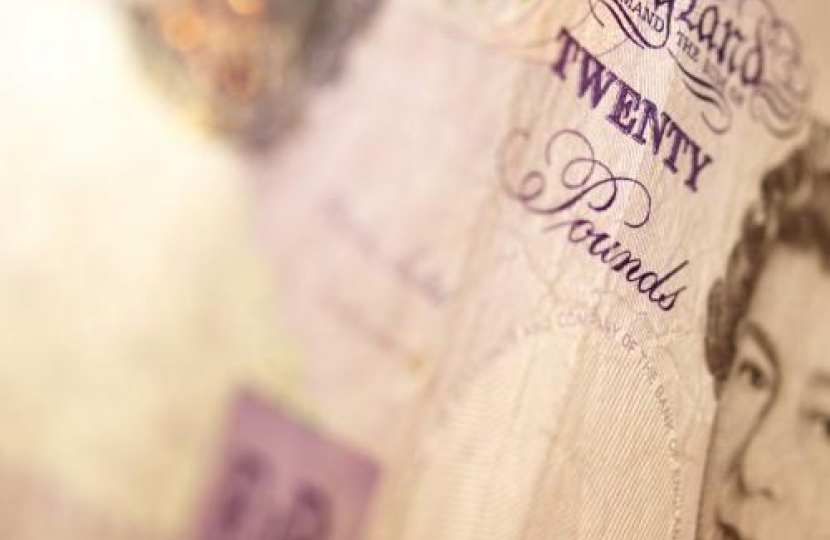
Economic figures published on Friday confirm what economist have feared for some time – that the economy is shrinking at a level not seen since Labour lost the election in 1979. GDP fell by 1.9% for Q1 2009, worse than the 1.5% predicted by the government and the third consecutive quarterly fall.
Although the Government confidently predicts that the economy will fall 3.5% for 2009, and recover in 2010, most forecasters think things will be worse, falling by 3.9% this year.
On Wednesday, Chancellor Alistair Darling announced one of the bleakest budgets in living memory, confirming that the Government will be increasing borrowing to £1.4 trillion - 79% of GDP - in order to pay for Gordon Brown’s decade of mismanagement.
In order to pay for this, Alistair Darling has decided to hit hard working families with extra risk and tax increases.
· Firstly is a hike in National Insurance for employers, making it less attractive to hire more staff with the extra cost possibly being passed on to workers’ pay-packets.
· Then come tax rises for every family of about £1,000, through employee NI hikes, affecting everyone earning more than £20,000
· Fuel duty is up 2p per litre – not good news for people having to get to work and especially bad news for rural communities.
· Alcohol duty is up again since December. Not good news for pubs already struggling.
· Business rates to go up by £1 billion – again, bad news for businesses who are already struggling.
But in the few days since the budget, most forecasters have now discredited Darling’s budget and expectations. Yvette Cooper has said that the cost of Brown’s recession will not be paid off until 2017, but this assumes a heroic recovery in the economy and realistic expectations suggest at least 20 years getting back to where we were in 1997.
Importantly, it now seems that the economy is struggling with a “structural deficit.” This is where the government has failed to recognise that some of its tax receipts in the past were from a boom and accordingly should have been treated as windfall. The boom in the City, where banks so disastrously took advantage of the regulations introduced by Gordon Brown under his flagship Financial Services and Markets Act 2000, is estimated by the Institute for Fiscal Studies to have been worth about 5% of GDP – about £140 billion, or about 24% of the cost of the government in 2007/8.
Mark Garnier, Wyre Forest’s Conservative Parliamentary Spokesman, commented on the budget: “There is a great deal to be gloomy about, but there are two areas that I focus on. The first is the structural deficit that needs to be resolved eventually. Increasing debt is the immediate option, but either spending has to come down, or receipts have to go up. Either the size of the government is reduced by 24%, or tax receipts have to go up accordingly. This isn’t rocket science – its simple budgeting and a combination of both with need to be looked at. To my mind, this structural deficit is clear proof Brown hadn’t a clue how to run an economy.
“The second problem is UK personal debt. This stands at about £1.4 trillion and represents about half of all personal debt across the whole of the EU. I suspect that people will feel inclined to deal with their personal debt before they feel inclined to incur more debt rushing out to stimulate the economy.
“We have truly epic problems that we haven’t seen since…. Well, since Labour were last in power. It seems incredible, looking back on the lost decade, to think of all the times Brown told us he was prudent and had ended boom and bust.”
David Cameron, in his speech to the Conservative Spring Conference, will highlight proposals to re-address the whole business of Government, re-iterating that health, schools, defence and international development will be ring fenced from any spending cuts.
